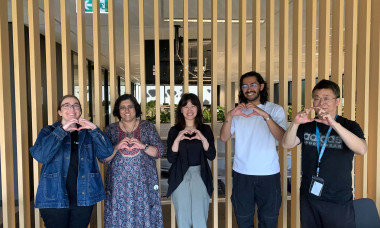Will educators of the future be selling lifetime subscriptions?
The education model we’re used to is one where learning is frontloaded before a career in a particular sector. Lasting up to four years or longer, these immersive foundational learning experiences promise entry into a sector and learnings that should last someone a lifetime.
Except we now know this is not the case. With industries being reshaped by technology and fast-paced change, the half life of skills has rapidly reduced for many. This means often, the knowledge or skills taught will need to be repeatedly updated to ensure currency into the future.
Should educators be re-orienting themselves towards a lifetime knowledge-as-a-service model?
Towards knowledge-as-a-service education?
Imagine for a moment a tertiary education and training world that wasn’t so excessively geared towards the flow of undergraduates and pre-career students that have sustained universities and vocational education in the age of ‘single-shot’ education. Adapting and evolving for longer and more flexible working lives, providers could be augmenting their businesses by accommodating the ongoing L&D needs of individuals who will have to traverse multiple careers and transitions.
A lifetime subscription - or Knowledge-as-a-Service model - could deliver a lifetime of guaranteed quality learning and training from a trusted source post-graduation for a fee, rather than preparing students intensively over periods of three to five years for a perceived unbroken lifetime of work. Meeting the growing need for the ongoing learning and skills required to navigate a longer and more volatile work and life reality, it might look a lot different from the way education looks now.
Many providers in the tertiary education and training sector have the benefit of a vast pool of alumni, with more names added to the list every year. While many students pass through education with the same mindset as educators - getting a qualification that will gain them a career for life - there is the potential to shift these alumni into a lifetime subscription mindset that will benefit them over the longer term and also provide a sustainable business model for educators into the future.
Characteristics of a lifetime subscription model
Knowledge-as-a-Service is not such a far-fetched idea. After all, there are education technology platforms that are right now providing learning by subscription across multiple disciplines, with many students happy to continually renew subscriptions as they line up their next courses. What might be the key characteristics of an education subscription model for today's sector?
- Non-linear
A current and evolving library of specific courses and programs would meet a person’s changing education and skill needs as they develop and transition, with no ultimate ‘end point’ in mind.
- Bite-sized
Courses would be delivered both online and in-person in shorter, more intensive formats on demand to ensure people could create space for ongoing learning, even within busy work and family lives.
- Engaging
Education would need to be high quality, useful and engaging to ensure students not only gain outcomes from ongoing study, but maintain interest in learning while paying for the privilege.
- Unboxed
Learners could follow unlikely connections across different disciplines, allowing things like leadership skills to sit alongside philosophy, or digital marketing to add a new dimension to a STEM career.
- Networked
Online and offline networking and collaboration would deliver on a promise of connection with a vast pool of experienced and like-minded peers all seeking to expand knowledge and opportunity.
- Everywhere
Course content would be fully enabled for a mobile and global base of alumni, who would be able to access the learning and expertise they require from anywhere, at any time and from any device.
- Forever
A fee-for-access subscription model would allow tertiary providers to renew access monthly or annually on an ongoing basis, ensuring graduates could still be learning into older age brackets.






